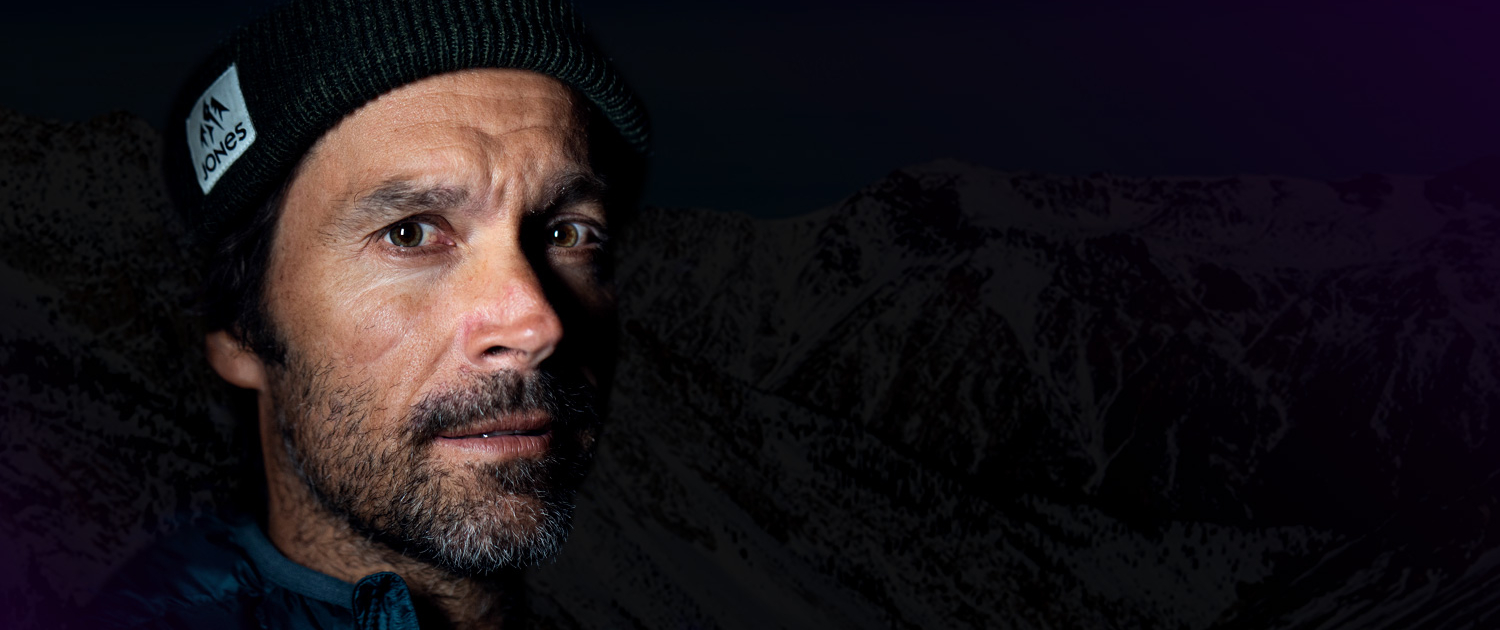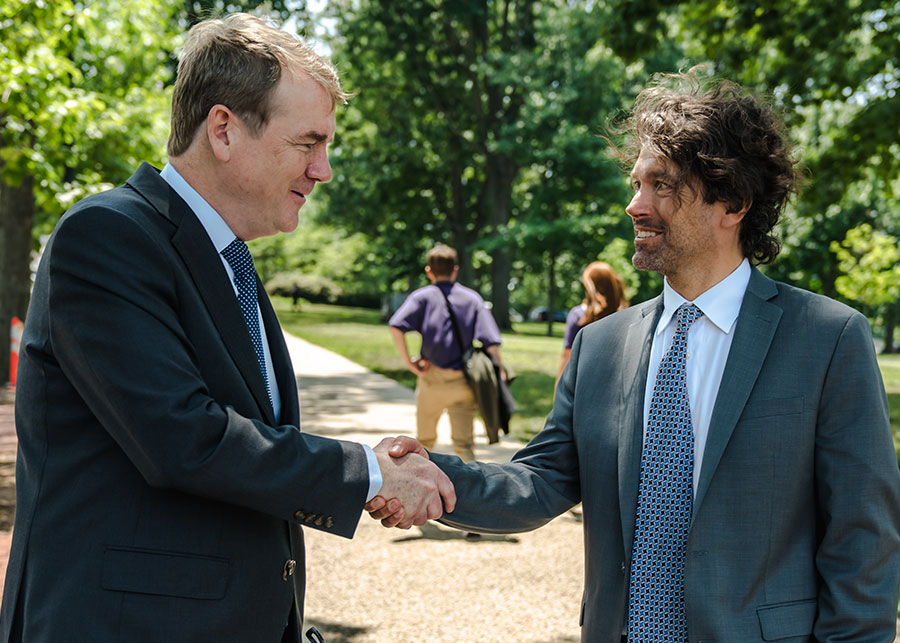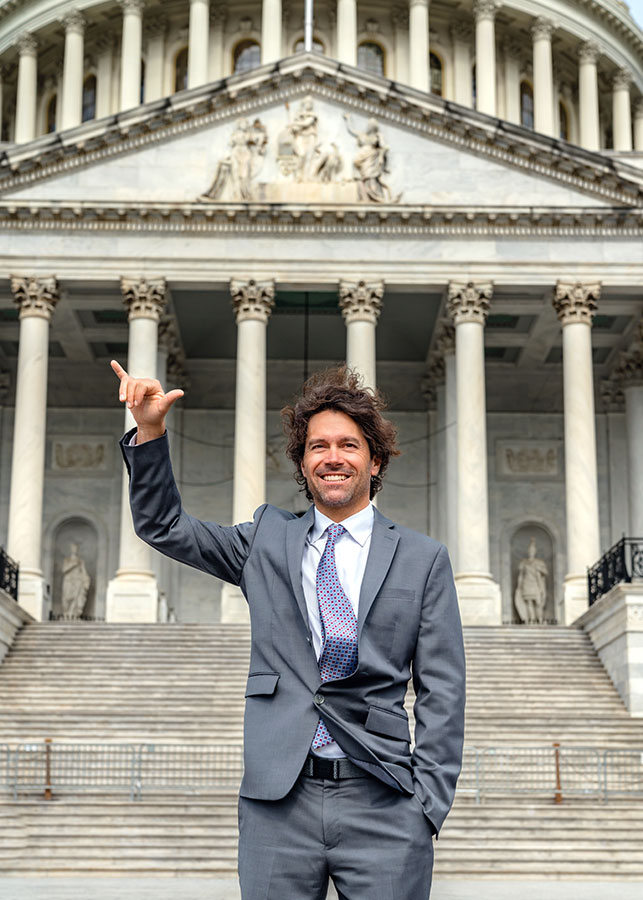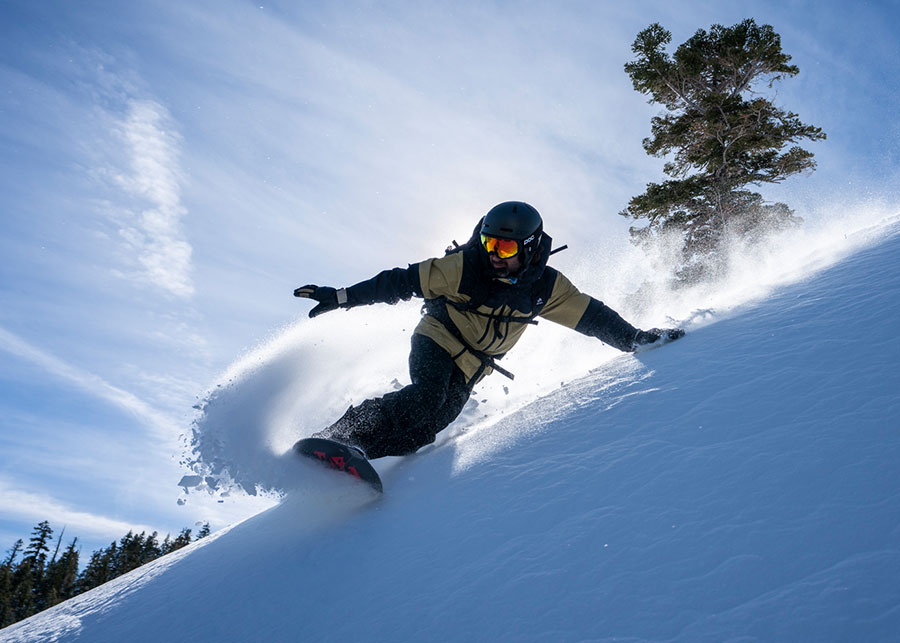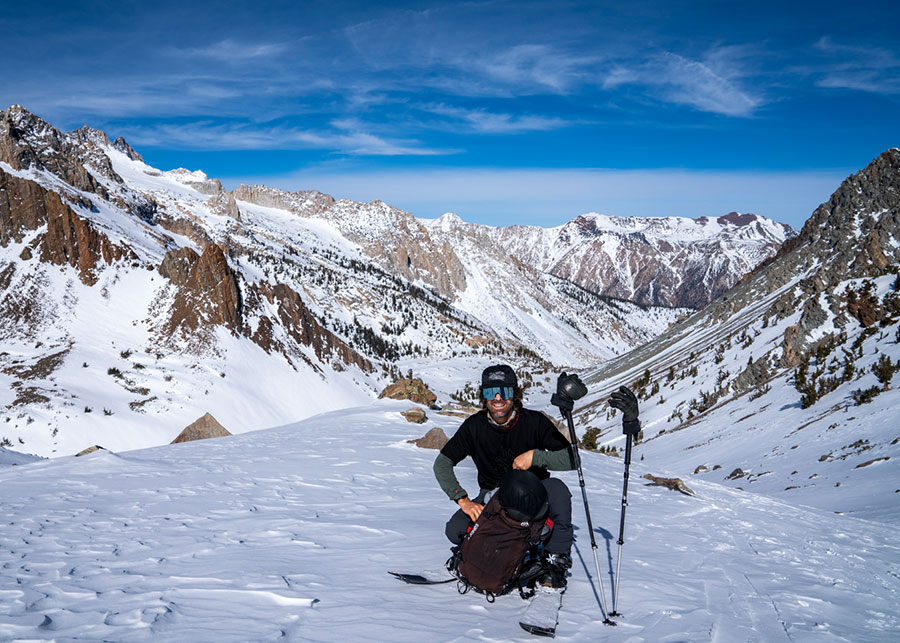“The first thing you need to do is find joy,” says Jones. “Maybe that joy comes from your work, maybe it comes from your recreation. For me it was snowboarding racing, and then big mountain snowboarding, and now backcountry and expedition snowboarding. I’m 48. I’ll ride 200 days this year because I love it. You exude that joy at the grocery store and in the lift line. You lift people up because you’re fired up. There’s purpose in that. Everything that came later for me started there.”
It’s a common arc of personal development. Passion leads to self worth, self worth leads to altruism and love of others. The main character in E. Annie Proulx’s book The Shipping News is simply “Quoyle.” He has no first name; no last name. His entire life he’s been led to believe he’s of no worth. For Quoyle, existence is quarrel and toyle. And then he lands a job as a reporter at a small-town newspaper on the coast of Maine. The subject matter gives him joy. People read his work because they can tell he cares. He takes pride in seeing his name in print. He’s rewarded with a column. He finds purpose.
That theme is especially relevant to our team at Hence. As creators, the folks at Hence find their passion and purpose in helping to support fellow creators. And while filmmakers, videographers, photographers, writers, and editors make up this community, creativity isn’t proprietary to some perceived “creative class.” Athletes like Jones find it in style, speed, and smart progression. Craftspeople find it in their hands. Engineers find it in innovation. Laborers find it in hard work.
We can’t all be Jeremy Jones, but we can all be Quoyles. My wife is a public school English teacher. She gets animated when a kid who’s been told they’re dirt finds their voice and produces independent thought. Sprinkle on a little recognition, and you change a young person’s trajectory. It takes creativity on her part to reveal the intellect in children.
When my father retired shortly after a quadruple bypass he started volunteering at the local hospital. Twenty years later, in his 80s, a few days a week he gets up, showers and shaves, and puts on ironed pants and a crisp shirt and drives to the hospital. I’m proud of him, but more to the point, he’s proud of himself. He helps people who are often scared and confused.
A childhood friend is a commercial fisherman off New England. In a madman’s choreography of physicality, he single handedly (no crew) runs a dragger and fills the deck with squid. He takes pride in the strength required, hard earned knowledge, and the harvest. Think about him the next time you eat calamari. Or don’t. He doesn’t care. Recognition is not always the point; meaning is.

